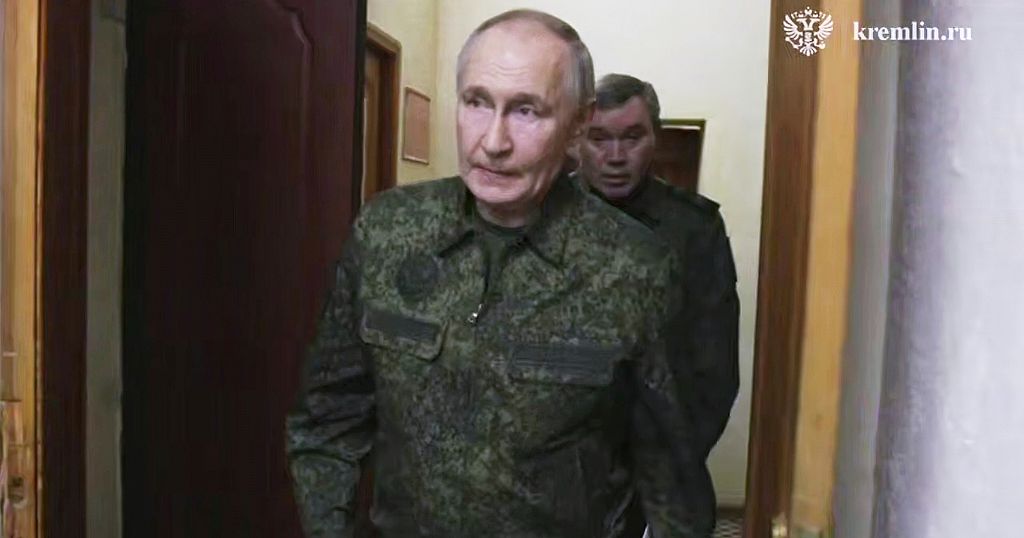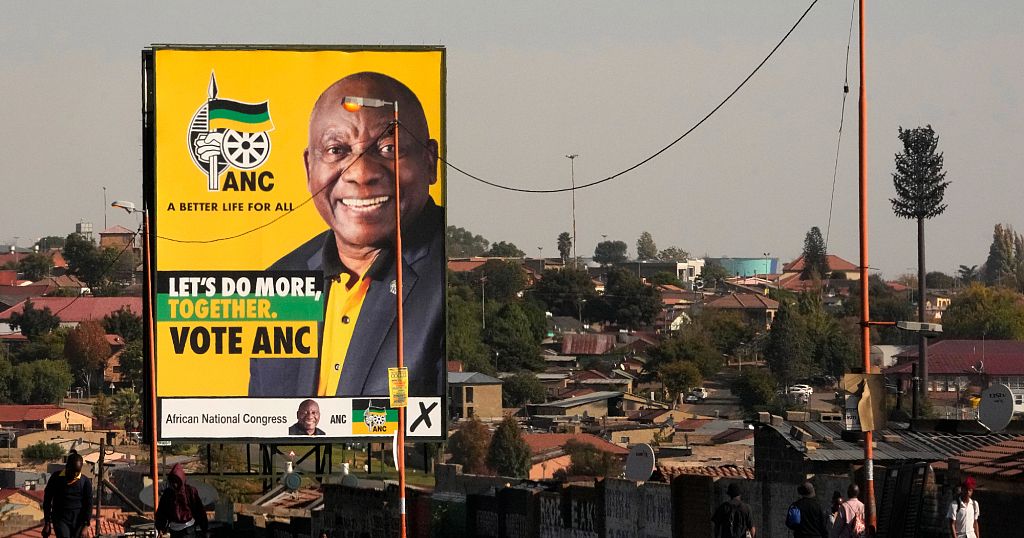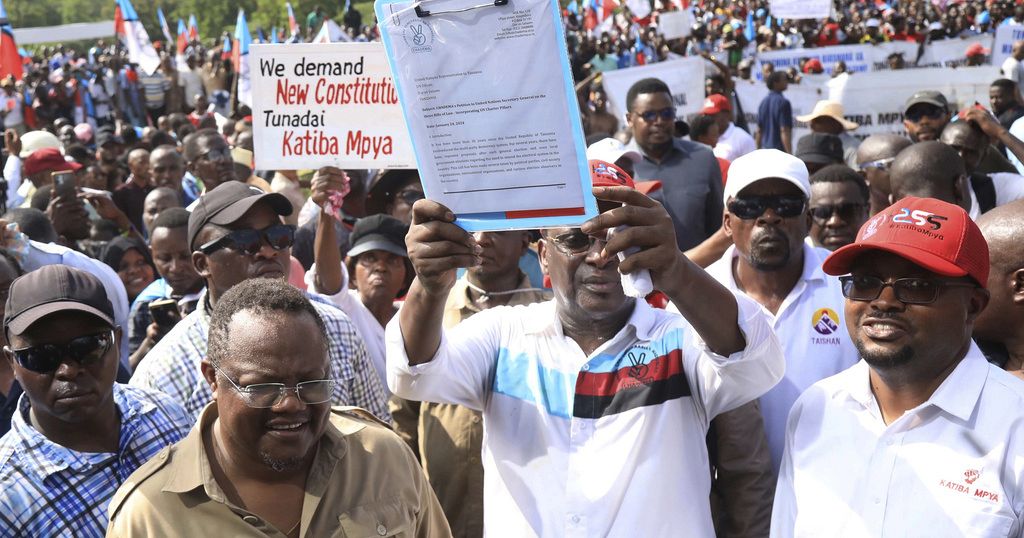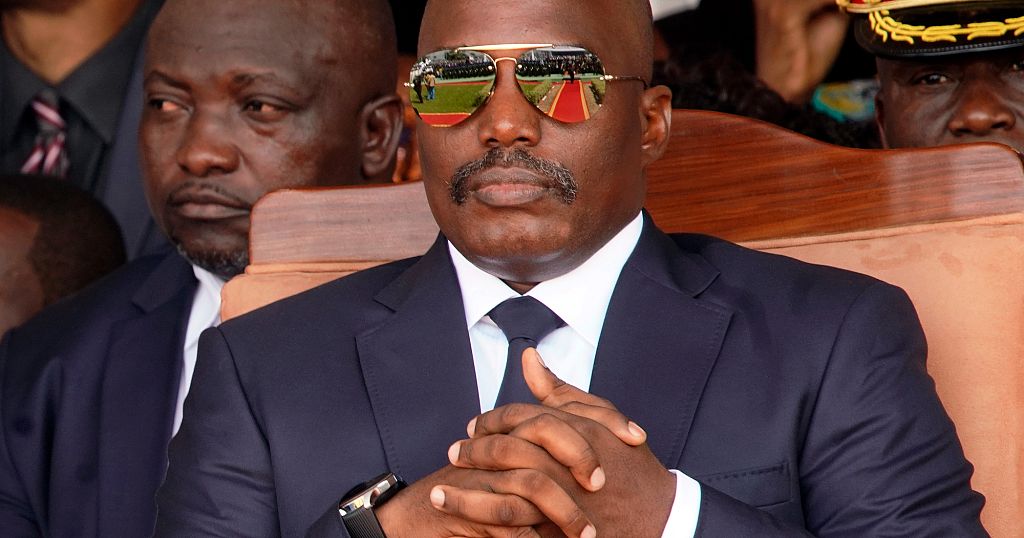Africa
Putin agrees to Ukraine ceasefire

Russian President Vladimir Putin said Thursday that he agrees in principle with a U.S. proposal for a 30-day ceasefire in Ukraine, but the terms need to be worked out, and he emphasized that it should pave the way to lasting peace.
“So the idea itself is correct, and we certainly support it,” Putin told a news conference in Moscow. “But there are issues that we need to discuss, and I think that we need to discuss it with our American colleagues and partners.”
He noted the need to develop a mechanism to control possible breaches of the truce. Another issue, he said, is whether Ukraine could use the 30-day ceasefire to continue mobilization and rearmament.
“We agree with the proposals to halt the fighting, but we proceed from the assumption that the ceasefire should lead to lasting peace and remove the root causes of the crisis,” Putin said.
Putin noted that while it appeared that the U.S. persuaded Ukraine to accept a ceasefire, Ukraine is interested in that because of the battlefield situation, noting that Ukrainian troops that launched an incursion into Russia’s Kursk region would be fully blocked in the coming days.
“In these conditions, I believe it would be good for the Ukrainian side to secure a ceasefire for at least 30 days,” he said.
Referring to the Ukrainian troops in Kursk, he said: “Will all those who are there come out without a fight?”
Putin thanked U.S. President Donald Trump “for paying so much attention to the settlement in Ukraine.”
He also thanked the leaders of China, India, Brazil and South Africa for their “noble mission to end the fighting to casualties,” a statement that signaled those countries’ potential involvement in a ceasefire deal.
Russia has said it will not accept peacekeepers from any NATO members to monitor a prospective truce.
Africa
Unprecedented trial for apartheid atrocities opens in South Africa

A significant step by South Africa’s legal system in confronting the atrocities of the country’s dark political past.
A judge this week approved the trial of two apartheid-era police officers for their involvement in the 1982 assassination of three student activists.
The prosecution is unprecedented. Until now, no individual had been held accountable for the crime of apartheid.
The case centers around three young freedome fighters killed in an explosion in 1982. The victims were part of a resistance movement opposed to the apartheid regime which enforced White-only rule and domination over the Black majority.
Experts say the trial could open the door for others.
Also this week, South Africa reopened an investigation into the death Albert Luthuli, a former president of the African National Congress (ANC) and Nobel Peace Prize laureate, who was killed in 1967.
The prosecuting authority seeks to have the findings of previous inquests into Luthuli overturned.
The authorities at the time had concluded that Luthuli’s death the result of an accident.
The development comes more than 30 years since South Africa became a democracy and after a Truth commission unearted numerous atrocities.
Africa
Tanzania opposition says jailed leader not seen by family, lawyers

Tanzania’s main opposition party said it had failed to get access to its leader who is in detention on treason charges.
CHADEMA said Friday that the family and lawyers of Tundu Lissu had failed to see him at a Dar es salaam jail where he had been kept since his arrest on April 9.
In a statement, the party said it held the Tanzanian government and Prisons Service responsible ble for Lissu’s safety.
The Prisons Service quickly denied that Lissu had been moved from jail.
In a statement, the agency dismissed CHADEMA’s concerns as misinformation.
“We would like to inform the public that Tundu Lissu is safe and he is still detained at Keko Prison in Dar es Salaam according to the country’s laws and procedures,” the Service said in a statement.
Lissu came second in Tanzania’s 2020 presidential election. Last week, he was arrested and later charged with treason after a speech demanding election reforms.
Prosecutors said the speech called for an uprising.
With another presidential vote on the horizon, critics say President Samia Suluhu Hassan’s government has ramped repression against the opposition.
This week, the election commission banned CHADEMA from taking part in elections after the party refused to sign a document pledging to obey the commission’s orders.
Africa
DRC: Kabila arrives in rebel-held Goma after return from exile

Former Congolese President Joseph Kabila, accused by the government of supporting rebels in the country’s east, returned to Congo from self-imposed exile on Friday, arriving in rebel-held Goma city, two of the ex-president’s associates and a rebel official said.
Kabila, who left Congo in 2023, came to Goma “to participate in peace efforts” in the conflict-hit east where Rwanda-backed M23 rebels have seized large swaths of territory, including the strategic eastern city, said a close aide of the former president.
Another associate of Kabila’s and a senior M23 official also confirmed the former president’s return. The three spoke on the condition of anonymity because they were not authorized to speak to the media on the topic.
Congo’s decades-long conflict escalated in January, when the rebels advanced and seized Goma, followed by the town of Bukavu in February. The fighting has killed some 3,000 people and worsened what was already one of the world’s largest humanitarian crises, with around 7 million people displaced.
Kabila seeks “to take part in efforts to find peace in the country,” his aide said. “Everyone is talking about Congo without the Congolese … this is not normal.”
The former president is expected to address Goma residents at some point, according to his associate, who accompanied Kabila on the trip.
It was not immediately clear how long Kabila would remain in Goma or what his plans were.
Kabila’s long-expected return is seen as controversial, with some analysts saying his presence in Goma could worsen tensions between the rebels and the Congolese government, especially amid ongoing efforts to negotiate a ceasefire.
Representatives of Congo’s government and M23 met in Qatar earlier this month as the Gulf Arab state leads renewed efforts to get both parties to return to dialogue and recommit themselves to a peace deal they each accuse the other of violating.
Christian Moleka, a political scientist at the Congolese think tank Dypol, said it was likely to have a “detonating effect on Congolese politics,” and strengthen the accusations by “those who believe that there is a connection between him and the M23 rebellion.”
Congolese President Felix Tshisekedi last year accused Kabila of backing the rebels and “preparing an insurrection” with them, a claim Kabila denies.
Kabila led Congo from 2011 to 2019, taking office at the age of 29 and extending his mandate by delaying elections for two years after his term was ended in 2017. His father, former President Laurent Kabila, was assassinated in 2001.
After leaving Congo, Kabila lived in South Africa and other African countries.
-

 Sports2 days ago
Sports2 days agoNY Rangers’ Panarin, MSG reportedly made settlement payments after employee made sexual assault allegations
-

 Education1 day ago
Education1 day agoHarvard’s battle with the Trump administration is creating a thorny financial situation
-

 Sports1 day ago
Sports1 day agoAaron Rodgers ‘not holding anybody hostage’ as he decides his future, retirement a possibility
-

 Lifestyle1 day ago
Lifestyle1 day agoSweets from the sky! A helicopter marshmallow drop thrills kids in suburban Detroit
-

 Middle East2 days ago
Middle East2 days agoSaudi defence minister visits Tehran before Iran-US talks | United Nations News
-

 Sports2 days ago
Sports2 days agoAaron Boupendza: 28-year-old former MLS player dies after falling from 11th floor balcony in China
-

 Lifestyle2 days ago
Lifestyle2 days agoRalph Lauren stays closer to home this time with intimate Manhattan gallery show
-

 Education2 days ago
Education2 days agoTrump admin threatens to stop Harvard from enrolling foreign students




